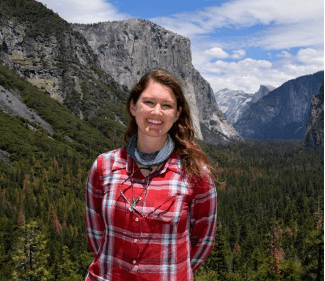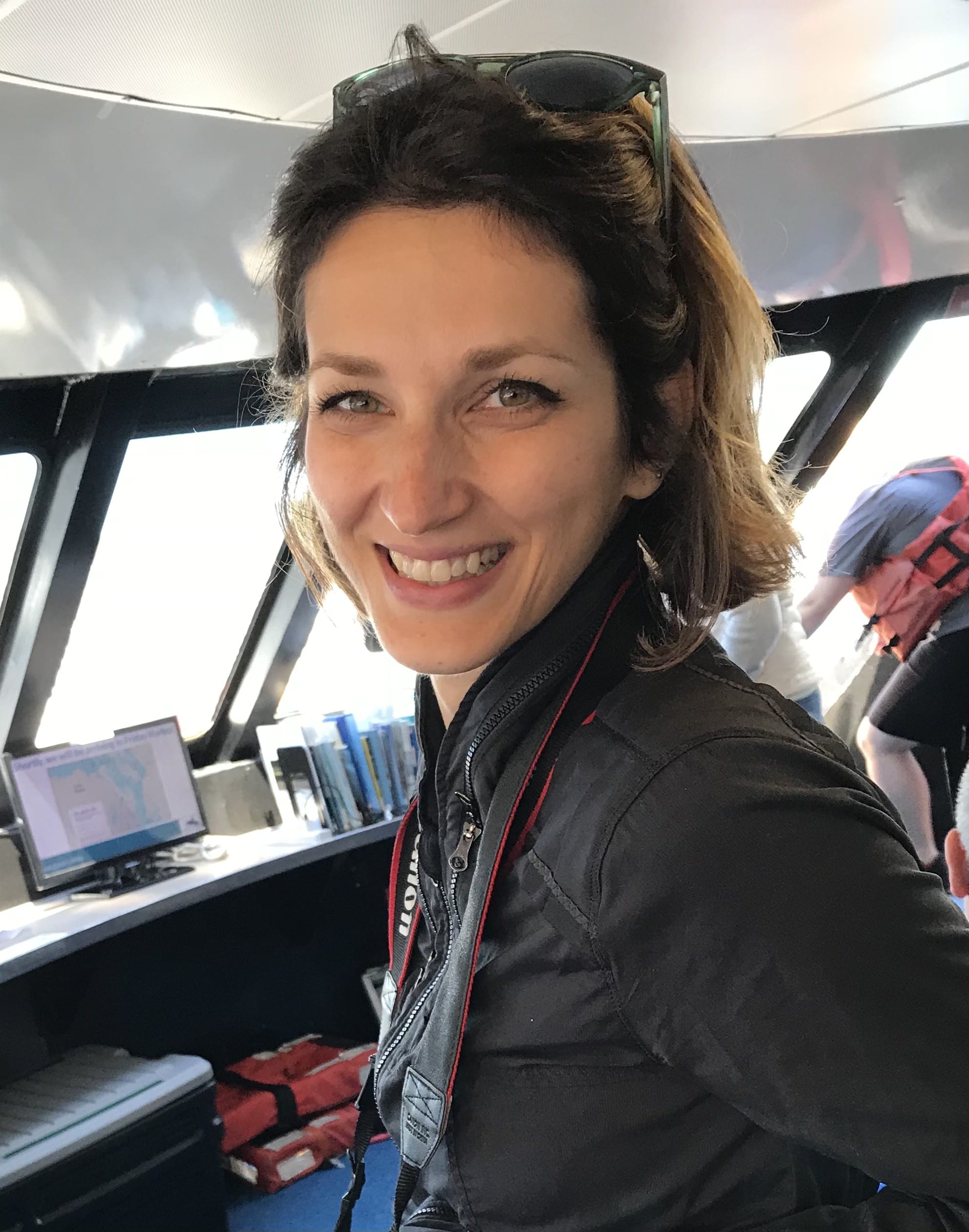Events
2022 Marine Policy Center Virtual Seminar Series Archive

Friday, January 21, 2022 • 1 p.m.
Accurate Specification of Water Availability Shows Its Importance for Global Crop Production
Jonathan Proctor, Postdoctoral Fellow, Harvard Data Science Initiative & the Center for the Environment, Harvard University
It is well established that warming temperatures damage the yields of many crops across the globe. Yet the influence of water supply on global agricultural yield and its relation to water demand and direct temperature stress is unclear. A number of global studies found a minor influence for precipitation, whereas some regional analyses suggest a more prominent role for water availability. Here, we use satellite-based measurements to quantify how soil moisture and temperature jointly influence the global productivity of maize, soybeans, millet, and sorghum. Relative to empirical models using precipitation as a proxy for water availability, models using soil moisture better separate water supply stress from correlated heat stress, leading to a 30 to 120% increase in explained variance of inter-annual yield anomalies across crops. Historic yield anomalies are equally determined by temperature and soil moisture, whereas projected damages associated with climate change are substantially larger for temperature. Globally, yield damages of -9% to -32% are predicted across crops under SSP5-8.5 between 2015-2035 and 2080-2100. Projections using temperature and precipitation, instead of soil moisture, overestimate the magnitude of damages to agricultural productivity because they confound heat stress and dryness stress, and because dryness associated with historically hot days is proportionately more severe than that expected for global warming. These findings indicate that use of remotely sensed measurements of soil moisture improve the representation of water supply in empirical crop models and document the importance of accurately measuring and modelling the influence of water supply to predict historic and future changes in global agricultural productivity.

wednesday, june 22, 2022 • 3 p.m.
The Effect of Managed Retreat on Coastal Property Markets: Evidence from the NY Rising Buyout and Acquisition Program
Dr. Yukiko Hashida, Assistant Professor, Dept. of Agriculture and Applied Economics, College of Agriculture and Environmental Sciences, University of Georgia.
Understanding the economic impacts to a community of removing housing and infrastructure from hazard-prone locations is an open empirical question. Using data from a buyout and acquisition program in the U.S. state of New York and residential property transactions between 1995 and 2020, we recover hedonic estimates of the property value impacts of government-acquired properties. Our identification strategy exploits the spatial proximities between sales and bought-out houses and the timing of different stages of the buyout process - closing, demolition (to be converted to open space) or auction (to be redeveloped), and/or redevelopment). Our results suggest that the buyout has negative impacts on housing prices, and its effects vary with proximity, indicating large negative impacts on adjacent houses and smaller negative impacts at the block and neighborhood scale that dissipate beyond 800 m. An event study specification supports the significant negative impact of the initial buyouts at a diminishing rate by proximity and suggests the impacts may dissipate after four to seven years. Our finding indicates heterogeneous responses to buyout across locations and stages. It provides policy implications for different buyout methods - one that returns parcels to open space and another that auctions them to developers for future redevelopment – and the role of information in the buyout process.

wednesday, August 31, 2022 • 3 p.m.
A Hedonic Study of New England Dam Removals
Dr. Todd Guilfoos, Associate Professor, Environmental and Natural Resource Economics, University of Rhode Island.
There are over fourteen thousand dams in the New England region. Recent efforts to remove dams to return rivers back to their natural orientations in the United States have increased, though a host of potential externalities exist to nearby communities. We compile 75 removed dams in the New England region to estimate the aggregate treatment effect of dam removal on nearby properties. We employ a repeat sales sample with property fixed effects and a difference-in-differences strategy to estimate proximity effects of dam removal. We find very weak evidence that dam removal has a negative effect on nearby housing prices, which may range from 0 to 9%. Though, we cannot reject the null hypothesis that dam removals have no effect on proximate property values.

Wednesday, October 26, 2022 • 3 p.m.
The Past and Future Struggle to Govern the Oceans
Dr. David Bosco, Associate Professor, International Studies, Hamilton Lugar School of Global and International Studies, Indiana University Bloomington
In 1609, the Dutch lawyer Hugo Grotius rejected the idea that even powerful rulers could own the oceans. "A ship sailing through the sea," he wrote, "leaves behind it no more legal right than it does a track." A philosophical and legal battle ensued, but Grotius's view ultimately prevailed. To this day, "freedom of the seas" remains an important legal principle and a powerful rhetorical tool.
Yet in recent decades, freedom of the seas has eroded in multiple ways and for a variety of reasons. During the world wars of the 20th century, combatants imposed unprecedented restrictions on maritime commerce, leaving international rules in tatters. National governments have steadily expanded their reach into the oceans. More recently, environmental concerns have led to new international restrictions on high seas fishing. Today's most dangerous maritime disputes--including China's push for control of the South China Sea--are occurring against the backdrop of major changes in the way the world treats the oceans.
The history of humanity's attempt to create rules for the oceans is alive and relevant.
2021 Marine Policy Center Virtual Seminar Series Archive

Friday, March 19, 2021 • 1 p.m.
Coral Reef Governance: Case Studies from Southeast Asia
Dr. Kelly Heber Dunning, Assistant Professor
Auburn University
The year 2020 marks a crucial deadline for signatories to the Convention on Biological Diversity (CBD), the most important global agreement for biodiversity conservation, which requires nations to meet conservation targets. Managers and decision-makers need a better understanding of the policy systems established to meet conservation targets in order to inform post-2020 CBD policy implementation. I compare two policy systems for implementing marine protected areas (MPAs) which protect a threatened source of biodiversity, coral reefs. I compare a centralized policy system, with power emanating from ministries (Malaysia), with a decentralized policy system, with power concentrated in subnational government (Indonesia). I use the policy process literature to build on the already substantial interdisciplinary literature on MPAs, drawing novel insights on policy-makers and how they determine policy problems, shape policy options, and are influenced by political events. I find that the tropics-wide coral bleaching event in 2015-2016 fundamentally changed the way managers perceive the problems that biodiversity conservation policy solves. Managers are beginning to prioritize policy responses to climate stressors with the same urgency as historically important stressors like overfishing, implementing responses at starkly different power centers within policy systems. Non-governmental organizations (NGOs), subnational governments, and the private sector are implementing innovative policy responses in the decentralized system, while the same actors in the centralized system face constraints because of its rigid policy framework. Understanding where starkly different power centers, and related dynamism, fall within policy systems allows for more effective reforms and investments for the next iteration of the CBD.

Friday, May 7, 2021 • 1 p.m.
Harvesting the rain: The adoption of environmental technologies in the Sahel
Dr. Kelsey Jack, Associate Professor, UC Santa Barbara
Environmental and Development Economics, Bren School of Environmental Science & Management
With Dr. Jenny Aker, Tufts University
We study the adoption of an environmental technology – demi-lunes – in Niger. Like many environmental technologies, demi-lunes require an upfront investment in exchange for medium-run benefits, which agronomists estimate to be substantial. We implement a cluster randomized control trial in 180 villages with treatments designed to relax informational, credit and labor constraints. Relative to a pure control, training increases the probability of adoption by 90 percentage points. Combining training with either unconditional or conditional cash
transfers has no additional effect on the extensive margin of adoption, but increases the intensity of adoption by 35-50 percent relative to training alone. We also observe increases in agricultural output, consistent with agronomic descriptions of the costs and benefits of adoption, as well as other measures of household well-being. Over 90 percent of treatment households have operational demi-lunes two years later. Using the pattern of results and our experimental design, we investigate the mechanisms underlying our findings.

Friday, July 9, 2021 • 1 p.m.
How to Finance a Sustainable Ocean Economy
Dr. Rashid Sumaila, University Killam Professor & Canada Research Chair in Interdisciplinary Ocean and Fisheries Economics. The University of British Columbia, Institute of the Oceans and Fisheries & the School of Public Policy and Global Affairs.
Abstract:
The ocean, which regulates climate and supports vital ecosystem services, is crucial to our Earth system and livelihoods. Yet, it is threatened by anthropogenic pressures and climate change. A healthy ocean that supports a sustainable ocean economy requires adequate financing vehicles that generate, invest, align, and account for financial capital to achieve sustained ocean health and governance. However, the current finance gap is large; we identify key barriers to financing a sustainable ocean economy and suggest how to mitigate them, to incentivize the kind of public and private investments needed for topnotch science and management in support of a sustainable ocean economy.
Bio:
Rashid Sumaila is a University Killam Professor and Canada Research Chair (Tier 1) in Interdisciplinary Ocean and Fisheries Economics at the Institute for the Oceans and Fisheries, and the School of Public Policy and Global Affairs, University of British Columbia. His research focuses on bioeconomics, marine ecosystem valuation and the analysis of global issues such as fisheries subsidies, marine protected areas, illegal fishing, climate change, marine plastic pollution, and oil spills. Dr. Sumaila received his Ph.D. (Economics) from the University of Bergen and his B.Sc. (Quantity Surveying) from the Ahmadu Bello University. Sumaila is widely published and cited. He won the 2017 Volvo Environment Prize and was named a Fellow of the Royal Society of Canada in 2019. His interest in the environment started early in life when his grandfather used to say people should “walk as if the ground feels pain” – he believes this is sophisticated environmentalism. His specific interest in ocean and fisheries was picked in Norway. Sumaila enjoys exploring novel ideas and mentoring future thinkers. He loves waking up each day thinking of how best to contribute to ensuring that we bequeath a healthy ocean to our children and grandchildren so they too can have the option to do the same.

Friday, september 3, 2021 • 1 p.m.
The Cost of Species Protection: The Land Market Impacts of the Endangered Species Act
Dr. Max Auffhammer, George Pardee Professor of International Sustainable Development and Associate Dean of Interdisciplinary Studies, UC Berkeley, Dept of Agricultural & Resource Economics & Dept of International and Area Studies
Protecting species habitats is the main policy tool employed across the globe in order to reduce biodiversity losses. These protections are hypothesized to conflict with private landowners’ interests. We study the economic consequences of the most extensive and controversial piece of such environmental legislation in US history the Endangered Species Act (ESA). Using the most comprehensive data on species conservation efforts, land transactions, and building permits to date, we show evidence that the ESA affects land markets in measurable and economically significant ways. We show that the Acts most stringent habitat protections lead to an increase in the value of residential properties both on treated land as well as land just adjacent. We find an imprecisely estimated negative effect for vacant lands, with larger drops in value inside critical habitats. Our findings highlight that the impact on land values depends on the timing of statutory protection enactment and the land-use in question. Further, we find no evidence of the ESA affecting building activity as measured by construction permits. Overall, the number of possibly negatively affected parcels is extremely small, relative to the positively affected parcels, suggesting that the capitalization of the economic impacts of the ESA through the land market channel are likely positive despite the potential delays to development.

Friday, November 5, 2021 • 1 p.m.
Multi-technology Salmon Aquaculture and Opportunities for a Flexible Regulatory Framework
Dr. Andreea Cojocaru, Post-Doctoral Fellow
University of Stavanger Business School
The presentation will discuss the different salmon aquaculture technologies, including the traditional and emerging solutions, and also put them in a regulatory context. Andreea will share her research on aquaculture economics and first-hand interactive experience with the Norwegian aquaculture industry, and will look to interact with the audience and to discuss aquaculture needs in the US.
Friday, december 10, 2021 • 1 p.m.
New Spatial and Engineering Intelligence Application for Pioneering Ocean Food and Energy Production
Dr. James Morris Marine Ecologist
NOAA, National Ocean Service
National Centers for Coastal Ocean Science
Ocean-based food and energy production is vitally important to our nation’s resiliency and security. However, both industries are challenged to find suitable locations that balance use conflict and environmental sustainability. While the U.S. EEZ is the largest in the world spanning 3.4 million square miles, much of our coastal ocean space is already occupied supporting existing uses including national defense areas, shipping, fishing, tourism, and much more. In addition, the coastal ocean is a highly diverse ecosystem supporting critical habitat and various threatened and endangered species. To address the growing demand for precision locating pioneering ocean industries, NOAA in collaboration with the Department of Energy and the Bureau of Ocean Energy Management have built new spatial and engineering intelligence applications. This presentation will explore some of these applications including OceanReports, the first EEZ-wide automated spatial analysis tool, and a virtual reality-based whale and sea turtle entanglement simulator.
